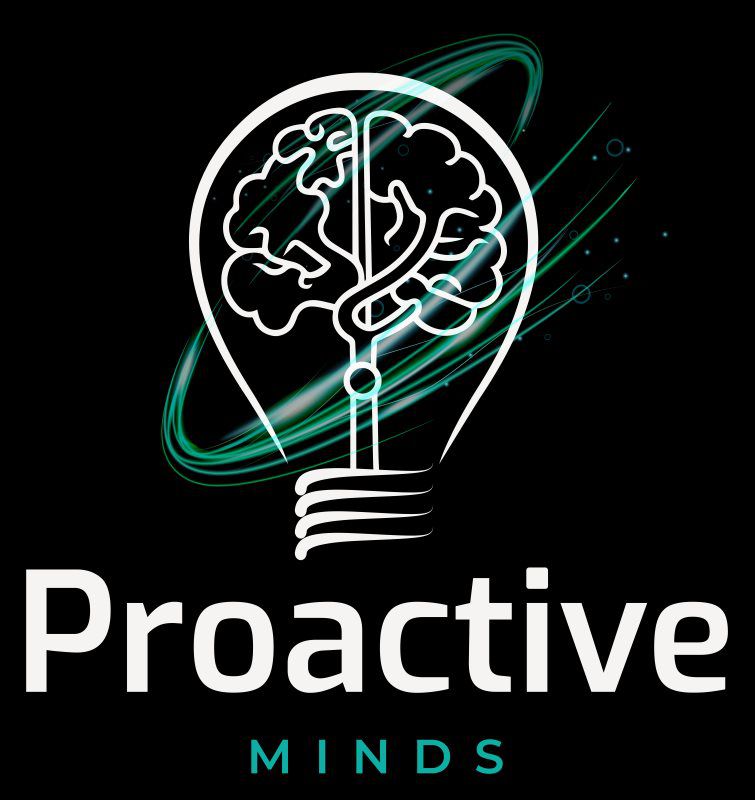Insomnia
Insomniacs have trouble falling asleep, staying asleep, or getting enough restful sleep. Insomnia is a sleep problem that affects many people. Sleep deprivation can lead to physical and behavioral health issues.
Understanding The Different Types of Insomnia
Insomnia, a widespread challenge, touches the lives of many individuals, often stemming from stress or traumatic experiences. It manifests in various forms, including acute bouts, transient episodes, or persistent struggles with sleeplessness. Whether triggered by life events, work pressures, or emotional upheavals, the impact of insomnia extends beyond mere sleep deprivation. Acknowledging the multifaceted nature of this issue, we at Proactive Minds understand the diverse factors contributing to insomnia and are here to provide support tailored to your unique circumstances.
Understanding the specific type of insomnia is crucial for tailoring effective treatment plans, whether they involve lifestyle changes, cognitive-behavioral therapy, or medical treatments. If you're experiencing persistent sleep issues, consulting with Proactive Mind mental healthcare professionals can help identify the underlying causes and develop an appropriate treatment methodologies.
Acute Insomnia
Short-term sleep disturbance lasting a few nights to a few weeks. Often triggered by stressful events, changes in environment, or life transitions.
Chronic Insomnia
Persistent difficulty sleeping that occurs at least three nights per week for three months or more. May be related to underlying health conditions, psychiatric disorders, or long-term stress.
Onset Insomnia
Difficulty falling asleep at the beginning of the night. Often associated with heightened anxiety or racing thoughts when attempting to initiate sleep.
Maintenance Insomnia
Difficulty staying asleep, resulting in frequent awakenings during the night. Can be linked to factors like pain, medical conditions, or substance use.
Comorbid Insomnia
Occurs alongside other medical or psychiatric conditions, such as depression, anxiety, or chronic pain. The interplay of these conditions can exacerbate insomnia symptoms.
Psychophysiological Insomnia
Involves learned sleep-preventing associations due to anxiety about sleep. Individuals may develop conditioned arousal and heightened awareness about the difficulty of falling asleep.
Idiopathic Insomnia
Persistent, lifelong difficulty with sleep onset and/or maintenance. Its cause remains unclear, and it often begins in childhood.
Insomnia's Signs and Symptoms
There are a variety of symptoms associated with insomnia, some of which are provided below:
- Having trouble sleeping at night
- Difficult to get a good night’s sleep
- Getting up way too early
- You may feel exhausted and tired after waking up
- Accidents occur as a result of a lack of sleep
- Having trouble focusing Dealing with anxiety, despair, and stress
What Causes Insomnia?
Understanding the underlying causes of insomnia is crucial for developing effective treatment strategies. Addressing lifestyle factors, managing stress, and creating a conducive sleep environment are common approaches. In cases where insomnia is persistent or significantly impacts daily functioning, seeking guidance from a healthcare professional is recommended for a comprehensive evaluation and tailored intervention plan.
Stress and Anxiety
High levels of stress and anxiety can contribute to difficulty falling asleep or maintaining a restful sleep.
Depression
Individuals with depression may experience changes in sleep patterns, including insomnia.
Medical Conditions
Certain medical conditions, such as chronic pain, respiratory issues, or hormonal disorders, can disrupt sleep.
Medications
Some medications, especially those affecting the central nervous system, may have insomnia as a side effect.
Poor Sleep Hygiene
Irregular sleep schedules, excessive use of electronic devices before bedtime, and an uncomfortable sleep environment can contribute to insomnia.
Environmental Factors
Noise, light, or temperature extremes in the sleeping environment can disrupt sleep.
Substance Use
Consumption of stimulants like caffeine or nicotine close to bedtime, or excessive alcohol intake, can interfere with sleep.
Shift Work and Jet Lag
Disruptions to the natural circadian rhythm, such as shift work or travel across time zones, can lead to insomnia.
Sleep Disorders
Conditions like sleep apnea, restless legs syndrome, or insomnia disorder itself can be primary contributors to sleep difficulties.
Age
Insomnia prevalence tends to increase with age, with older adults often experiencing changes in sleep patterns.
How Can Proactive Minds Help Treat Insomnia?
The treatment of insomnia at Proactive Minds involves a comprehensive and personalized approach to address the underlying causes and promote healthy sleep patterns. Our goal is to provide tailored and evidence-based interventions to address insomnia and improve overall sleep quality. By combining therapeutic approaches, behavioral modifications, and lifestyle adjustments, we aim to empower individuals with effective tools for managing and overcoming insomnia.
Cognitive-Behavioral Therapy for Insomnia
CBT-I is a structured therapeutic approach that addresses thoughts, behaviors, and attitudes related to sleep. It helps individuals develop healthier sleep habits and manage factors contributing to insomnia.
Sleep Hygiene Education
We provide guidance on improving sleep hygiene, including establishing a consistent sleep schedule, creating a comfortable sleep environment, and minimizing disruptions before bedtime.
Stress Management Techniques
Stress and anxiety are common contributors to insomnia. We offer stress management techniques, such as relaxation exercises, mindfulness, and cognitive strategies, to promote emotional well-being.
Behavioral Interventions
Behavioral interventions may involve stimulus control, where individuals establish a strong association between the bed and sleep, and sleep restriction, optimizing time spent in bed for actual sleep.
Sleep Environment Optimization
We assess and recommend adjustments to the sleep environment, considering factors like lighting, noise, and temperature to create an optimal setting for restful sleep.
Gradual Sleep Schedule Adjustments
For individuals with irregular sleep patterns or circadian rhythm disruptions, we work on gradually adjusting the sleep schedule to promote better alignment with natural sleep-wake cycles.
Nutritional Guidance
We provide guidance on nutrition and dietary choices that may impact sleep, such as avoiding stimulants close to bedtime and incorporating sleep-promoting foods.
Medication Evaluation
In certain cases, medication options may be considered after a thorough evaluation. This is done cautiously, considering individual health factors and potential side effects.
Regular Follow-Up and Monitoring
We conduct regular follow-up appointments to monitor progress, assess the effectiveness of interventions, and make any necessary adjustments to the treatment plan.
Education on Healthy Sleep Patterns
We educate individuals on the importance of maintaining consistent sleep patterns, including the recommended duration of sleep for different age groups.




